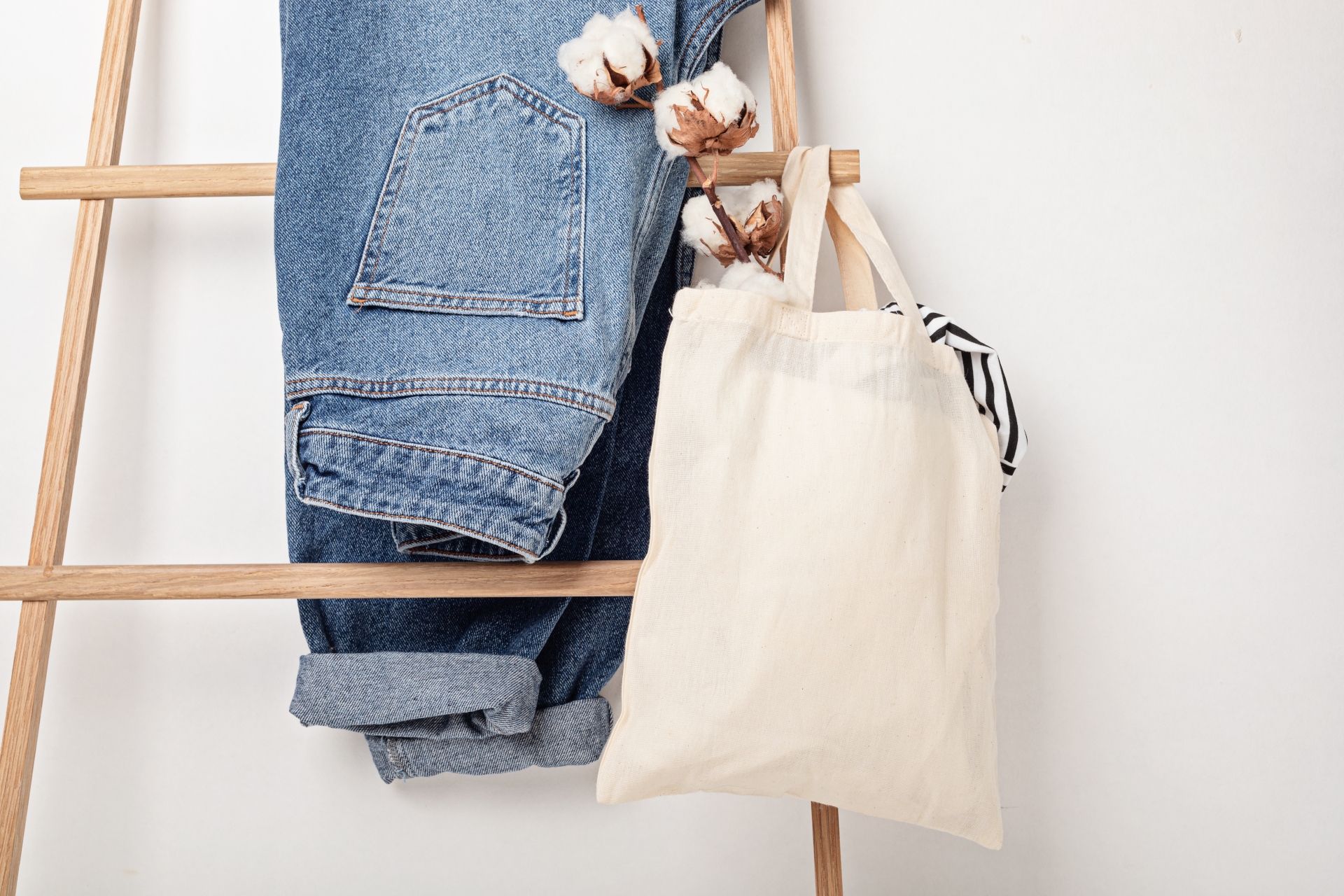Why Buying A Tote Bag Won’t Make You More Sustainable
By
2 years ago
Less is more

We all have at least one tote bag lurking around the kitchen cupboard or at the back of our wardrobe – likely more than one, if you’ve got a thing for canvas accessories. But while tote bags are seemingly synonymous with sustainability, our habits have made it so that in recent years this is no longer the case. From overproduction to the materials used, there are numerous reasons why buying a tote bag won’t make you more sustainable…
Why Buying A Tote Bag Won’t Make You More Sustainable
Overproduction
How many tote bags do you have at home – One? Two? Twelve? Whatever the number, it’s probably higher than it ought to be. What was once a tactic for avoiding the overuse of plastic bags has since become a fashion staple, with people all over the world adopting tote bags as part of their daily wardrobe. With this development, the demand for tote bags has only gone up, causing many manufacturers to actually overproduce them. This is perhaps ironic when we consider the image associated with tote bag users: that of an eco-conscious consumer looking to save the planet one cotton carrier at a time.
This unfortunately means that we are now consuming more tote bags than we are using, making it even more difficult to reuse them enough to balance out the energy used to make them.
Materials
Producing tote bags can take up a lot more energy than we think – especially when we consider just how many are manufactured.
While we consider the organic cotton used to make our favourite shopping accessory wholly sustainable, a 2011 study by the UK’s Environment Agency revealed that a cotton bag’s total footprint (including growing, manufacturing, and transportation) wracked up 598.6 lbs of CO2. When compared to the 3.48 lb of standard HDPE bags (the slightly sturdier plastic bags you pay for at the supermarket), this number is mammoth.

(c) Getty Images
Reusing
It’s also been shown that materials other than cotton perform better in terms of sustainability metrics. For example, National Geographic highlights how nonwoven polypropylene, a durable plastic, only needs to be reused around 11 times to ‘break even’ with the impact of conventional plastic.
In contrast, a 2018 study by the Ministry of Environment and Food of Denmark found that an organic cotton tote needs to be reused 20,000 times before it meets the environmental performance of a conventional plastic bag – and when we have multiple cotton totes, this number becomes more and more unachievable.
Additionally, it’s been suggested that organic cotton totes will need to be reused a lot more than conventional cotton totes, due to the fact that organic cotton is estimated to need 30 per cent more resources to grow the same amount as conventional cotton. So, where organic cotton totes will need to be reused approximately 20,000 times, conventional cotton bags only need to be reused roughly 7,000 times to match the environmental performance of plastic bags.
Recycling
While organic cotton can easily be recycled, preventing textile waste and saving 765,000 litres of water per ton of cotton recycled, cotton totes are a bit more complicated.
When cotton totes are sent out to be recycled, the logos and messages printed on the side of each bag are often non-recyclable – meaning they have to be cut out and thrown into general waste. According to textile recycling and sustainability experts, this process can waste an estimated 10 to 15 per cent of cotton received by a single recycling firm.
Use what you have
While the mechanics surrounding what you should and shouldn’t use isn’t always straightforward, one of the easiest ways to stop the harsher impacts of tote bags is by simply making do with what you already have. We’re not saying you should stop using your tote bag – in fact, you should be using it more. The purpose of tote bags is that they can be reused over and over again, making it easier to reduce your consumption levels and stop feeding into the (over)production chain. So dust off the bags from the back of the cupboard – regardless if they are tote, plastic or paper – and keep using them.
Featured image: Mohadese Marvi, Unsplash







